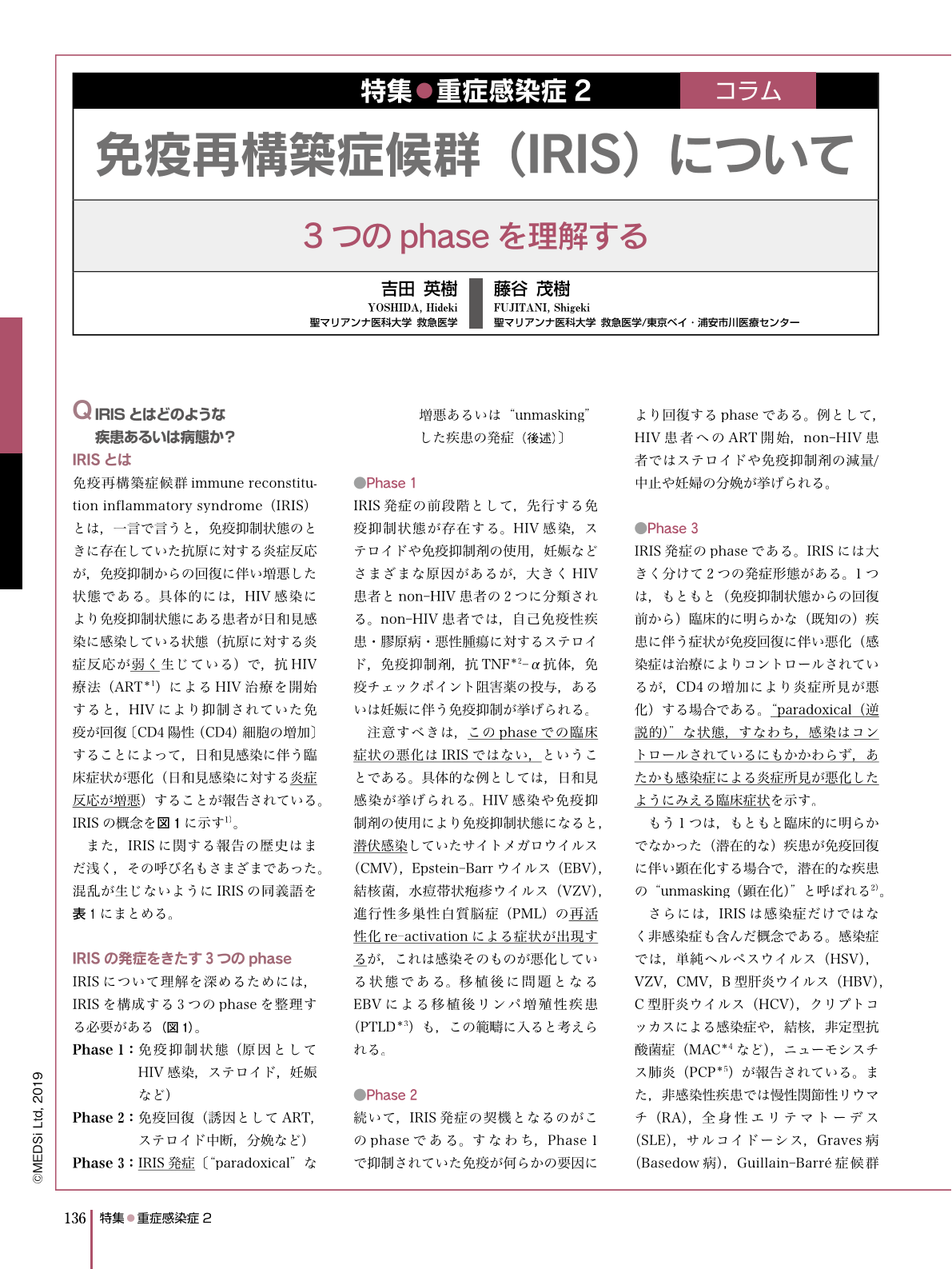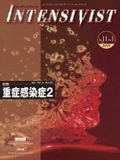Japanese
English
- 有料閲覧
- Abstract 文献概要
- 1ページ目 Look Inside
- 参考文献 Reference
- サイト内被引用 Cited by
Q IRISとはどのような疾患あるいは病態か?
IRISとは
免疫再構築症候群immune reconstitution inflammatory syndrome(IRIS)とは,一言で言うと,免疫抑制状態のときに存在していた抗原に対する炎症反応が,免疫抑制からの回復に伴い増悪した状態である。具体的には,HIV感染により免疫抑制状態にある患者が日和見感染に感染している状態(抗原に対する炎症反応が弱く生じている)で,抗HIV療法(ART*1)によるHIV治療を開始すると,HIVにより抑制されていた免疫が回復〔CD4陽性(CD4)細胞の増加〕することによって,日和見感染に伴う臨床症状が悪化(日和見感染に対する炎症反応が増悪)することが報告されている。IRISの概念を図1に示す1)。
また,IRISに関する報告の歴史はまだ浅く,その呼び名もさまざまであった。混乱が生じないようにIRISの同義語を表1にまとめる。
Immune reconstitution inflammatory syndrome (IRIS) represents a clinical worsening of immune-mediated inflammation against an antigen along with immune recovery. There is no internationally accepted definition of IRIS. Dividing the series of event into three phases provide a clear understanding of IRIS, including the Immunosuppression phase, Immune recovery phase, and Onset phase. During the onset phase, IRIS occurs in two patterns. One is the worsening of treated inflammation against an antigen, the called “paradoxical reaction”, the other is the unmasking of previously sub-clinical, untreated inflammation against an antigen, so called “unmasking”. IRIS was initially recognized and has mostly been reported in HIV-infected patients treated with antiretroviral therapy (ART). IRIS usually presents as infectious diseases. It can be fatal, especially if it involves the central nerve system, so the timing to initiate ART must be decided carefully. Recently, IRIS has been reported in non-HIV-infected patients, and as non-infectious diseases. Paradoxical clinical worsening has been reported in patients with tuberculosis or pneumocystis pneumonia along with initiating treatment regardless of whether they are HIV infected or not. While the most appropriate name may not be “IRIS”, it is important to recognize this condition, and understand that steroid therapy can improve the patients' prognosis.

Copyright © 2019, MEDICAL SCIENCES INTERNATIONAL, LTD. All rights reserved.


